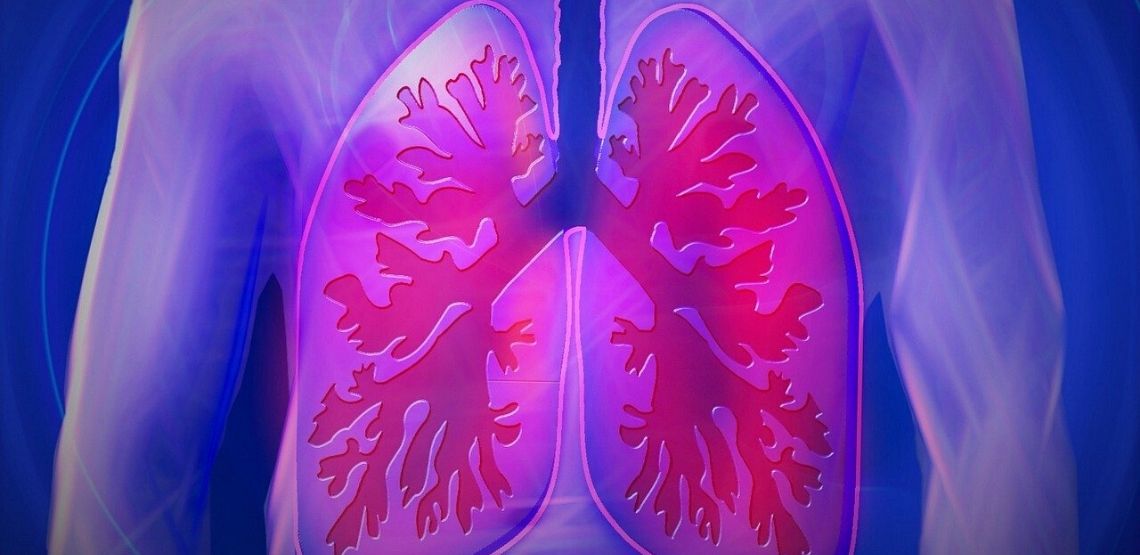Symptoms of Bronchitis in Adults
Bronchitis is a lung condition that involves swelling and inflammation of the tubes that go to the lungs called the bronchi. The airways become thicker due to the inflammation. The condition can be acute, which means symptoms can develop quickly and usually last a few weeks. But some people also develop chronic bronchitis. Chronic bronchitis develops over time and lasts long-term. Let’s look at the symptoms of bronchitis in adults.
What Are the Causes of Acute and Chronic Bronchitis?
Acute and chronic bronchitis have different causes. Usually, acute bronchitis is caused by a viral infection. Viruses that cause the flu and a cold can also cause bronchitis. Less often, bacterial infections can also cause acute bronchitis.
Chronic bronchitis has a different cause. According to the American Lung Association, “the main cause of chronic bronchitis is smoking.” But people who do not smoke can also develop this condition.
What Are the Risk Factors?
Anyone can develop acute bronchitis, but certain factors increase your risk, including:
- Having chronic bronchitis
- Being a smoker
- Exposure to someone with a cold or flu
- Weakened immune system
Since chronic bronchitis tends to develop over a long period of time, age is a risk factor. Additional risks for chronic bronchitis include:
- Smoking
- Exposure to secondhand smoke
- Gastroesophageal reflux disease
- History of childhood respiratory diseases
Symptoms of Acute Bronchitis
Symptoms of acute bronchitis may develop suddenly, over a day or two, and can vary in severity. Usually, symptoms resolve within a week, but the cough may last a few weeks. Acute bronchitis symptoms include:
- Cough
- Increased mucus
- Fatigue
- Chest congestion
- Fever, which is usually low-grade
- Sore throat
- Wheezing
Symptoms of Chronic Bronchitis
Chronic bronchitis involves ongoing inflammation in the bronchi. Additionally, the cilia, which are the hair-like structures in the bronchi, become damaged by the inflammation. The damage interferes with the proper functioning of the cilia, which increases susceptibility to infection.
In addition to increased risk of infection, symptoms of chronic bronchitis may include:
- Increased mucus
- Coughing
- Fatigue
- Chest tightness
- Breathlessness
- Wheezing
- Chest congestion
Related Search Topics (Ads)
Diagnosing Bronchitis
Acute and chronic bronchitis may be diagnosed through a medical exam, including a history of symptoms. The doctor also should perform a physical exam, including listening to lung sounds when you breathe in and out.
Specific lung sounds tend to occur with different disease processes. So, it helps to listen to the lungs to identify increased mucus, constriction of the airways, or fluid in the lungs.
Your doctor may also order a chest x-ray to help make a diagnosis. The x-ray may not definitively diagnose acute or chronic bronchitis, but it does help rule out other conditions, such as pneumonia.
Usually, acute bronchitis is diagnosed based on symptoms. If chronic bronchitis is suspected, the doctor may order a pulmonary function test to determine the severity of the condition.
Treatment Options
Treatment varies depending on whether a person has acute or chronic bronchitis. The following treatments may be recommended.
Treatments for Acute Bronchitis
Cough Medications
Bronchitis often leads to coughing, which may persist for a few weeks even after other symptoms have dissipated. Cough medication may include cough suppressants at night to help you sleep and expectorants, which are useful to help break up the mucus.
Pain Relievers
Some people with acute bronchitis may develop a low-grade fever. The chest can also become sore from coughing. Over the counter pain medication is also useful to reduce a fever.
Bronchodilators
Bronchodilators are medications that open up the lungs. They are often prescribed to treat chronic bronchitis, but they can also be useful in acute bronchitis.
Rest
Getting enough rest is vital to keep your immune system functioning well to fight off the infection. Try your absolute best to get at least eight hours of sleep each night.
Antibiotics
Antibiotics are not routinely given to treat acute bronchitis since most cases occur due to a virus. But if bronchitis is due to a bacterial infection, antibiotics might be recommended.
Treatments for Chronic Bronchitis
Breathing Treatments
Nebulized breathing treatments with a bronchodilator, such as Albuterol or Xopenex, relax the muscles around the airways. The relaxation allows the airways to open, which eases wheezing, chest tightness and shortness of breath.
Inhaled Steroids
Inhaled steroids, such as Flovent, decrease inflammation in the airways. They are taken as a long-term medication to ease symptoms.
Mucus Clearing Devices
People with chronic bronchitis tend to have excess mucus. The mucus can become thick, which may make it harder to get out of the lungs. A mucus clearing device is a small handheld piece of equipment that the user blows into. Blowing into the device delivers vibration to the airways, which helps break up the mucus. By breaking up the mucus, it makes it easier to cough out of the lungs.
Pulmonary Rehabilitation
Pulmonary rehabilitation classes are a great idea for people with long-term lung diseases, such as chronic bronchitis. Pulmonary rehab teaches people with chronic bronchitis how to manage their conditions. Information may include how to use inhalers, breathing exercises to decrease shortness of breath, and ways to stay healthy and decrease infection.
Talk to Your Doctor
To properly diagnose your symptoms, make sure you voice your concerns to your doctor. They can look into your symptoms and determine what you are dealing with. They can also offer effective treatment options.


